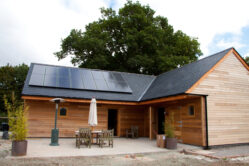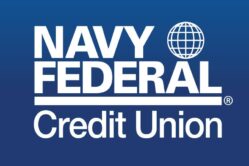Whether you’re looking to customize a new home from the ground up or renovate an existing property, a VA construction loan can help make it happen. With flexible terms and competitive rates, these loans are one of the most affordable ways to make your dream home a reality.
Let’s dive into the intricate world of VA construction loans, explaining the process, highlighting the benefits and providing insights to eligible borrowers.
Key Takeaways:
- What They Are: VA construction loans help veterans buy land and build a custom home as their primary residence.
- Eligibility: Veterans must meet VA loan criteria, provide detailed construction plans, work with approved builders, and undergo inspections and appraisals.
- Types: Options include VA One-Time Close Construction Loans and Two-Time Close VA Loans.
- Availability: Finding a lender who offers VA construction loans can be difficult. However, there are workarounds you can employ to build your dream home and still use your VA loan benefit.
Table of Contents
- What is a VA construction loan?
- VA Construction Loan Requirements
- Types of VA Construction Loans
- VA One-Time Close Construction Loan
- Two-Time Close VA Loan: Construction-to-Permanent Refinance Loans
- What Kind of House Can I Build with a VA Construction Loan?
- VA Construction Loan FAQs
- How will my credit score affect a VA construction loan?
- What is the debt-to-income ratio for a VA construction loan?
- Can I use a VA loan on a newly built house?
- Why are lenders so hesitant to offer VA construction loans?
- Conclusion
- More Reading
What is a VA construction loan?
A VA construction loan is a short-term loan that allows veterans to purchase land and custom-build a home as their primary residence. It often involves separate closings for construction financing and a permanent mortgage.
Like traditional VA loans, the VA construction loan comes with many benefits, including:
- No down payment required
- No private mortgage insurance (PMI)
- Competitive interest rates
- Flexible income and credit requirements
VA construction loans are designed for veterans looking to build a home as their primary residence. That said, if you want to finance the construction from beginning to end with a VA loan, the process can be more challenging than purchasing a recently completed “new construction” home.
One of the biggest challenges is finding a VA construction loan lender. Many lenders do not currently offer this type of financing, but options are still available for veterans who want to build their ideal home and utilize their VA loan benefits.
VA Construction Loan Requirements
To qualify for a VA construction loan, you must meet the requirements set by the Department of Veterans Affairs (VA). These encompass the standard criteria for a VA loan and a set of additional prerequisites.
Those additional requirements include:
- Construction plans and specifications: You must provide detailed plans and specifications of your proposed construction project to the lender for approval.
- Builder requirements: The builder you choose must be licensed and insured and have a valid VA builder ID. The VA has a tool that shows VA-registered builders available in your area.
- Construction loan fees: You may be required to pay certain fees associated with the construction loan, such as an origination fee and inspection fees.
- Inspections: The construction project will be subject to regular inspections to ensure it meets VA and lender standards.
- Appraisal: The property must be appraised to determine its value and ensure it meets VA and lender requirements.
- Funding disbursement: Funds for the construction project are disbursed in stages rather than as a lump sum to ensure that the project stays on track and meets quality standards.
Types of VA Construction Loans
There are two primary types of construction loans available to veterans: the VA One-Time Close Construction Loan and the Two-Time Close VA Loan. Each option has its unique process and set of steps, which can cater to different needs and circumstances.
Understanding these options is crucial for making an informed decision and successfully navigating the loan process.
VA One-Time Close Construction Loan
A VA One-Time Close Construction Loan combines the construction financing and the permanent mortgage into a single loan, requiring only one closing. This type of loan simplifies the process by merging both stages into one.
Advantages:
- Single Closing: Only one set of closing costs and one loan approval process, reducing hassle and expenses.
- Simplified Process: Combines construction and permanent financing, making it easier to manage.
- VA Benefits: No down payment, competitive interest rates, and no private mortgage insurance (PMI).
Veterans looking to build a custom home without the complexity of multiple loan processes might find this option appealing. It’s ideal for those who want a streamlined process and wish to avoid the extra costs and steps associated with separate loans.
The process to obtain a one-time close construction loan includes:
- Find a VA Construction Loan Lender: Locate a lender that offers VA One-Time Close Construction Loans.
- Obtain a Certificate of Eligibility (COE): Verify your eligibility for a VA loan.
- Qualify the Borrower: The lender assesses your financial status, including credit score and debt-to-income ratio.
- Find a Builder: Select a qualified builder and submit construction plans. Builders that do not have a valid VA builder ID number can obtain them through the VA’s online portal.
- Order an Appraisal: The lender orders an appraisal based on the construction plans.
- Close the Loan: Complete the loan closing, covering both construction and permanent financing.
- Begin Construction: Construction starts once the loan is closed.
- Final Inspection and Occupancy: After construction, a final inspection ensures the home meets VA standards, followed by issuing a Certificate of Occupancy.
Two-Time Close VA Loan: Construction-to-Permanent Refinance Loans
A Two-Time Close VA Loan involves two separate loans: an initial construction loan (non-VA) and a subsequent VA loan to pay off the construction loan upon completion. This method allows for greater flexibility in financing construction but involves two separate loans.
Advantages:
- Flexibility: Allows use of different financing options for construction, then secures a VA loan for the permanent mortgage.
- VA Benefits Post-Construction: Takes advantage of VA loan benefits such as no down payment and no PMI once the construction is complete.
- Potential for Better Terms: May offer better terms for the construction phase through non-VA financing options.
Veterans who need flexibility in their financing options or who find it challenging to secure a VA construction loan directly might benefit from this approach. It’s also suitable for those working with builders or lenders who prefer non-VA construction loans.
The process to get a two-time close VA loan is:
- Get Connected with a VA Lender: Discuss construction loan options with a VA lender.
- Verify Certificate of Eligibility (COE): Confirm your eligibility for a VA loan.
- Find a Builder: Choose a qualified builder with a valid VA builder ID and submit the construction plans.
- Qualify the Borrower: The lender evaluates your financial status to ensure you can afford the loan.
- Order a VA Appraisal: The lender orders an appraisal based on the construction plans.
- Close the Initial Loan: Secure a non-VA construction loan to cover building costs.
- Start Construction: Begin the construction process.
- Complete Construction: Finish the construction as per the approved plans.
- Final Inspection: Conduct a final inspection to ensure the property meets VA requirements.
- Re-Qualify the Borrower: The lender evaluates your financial status before the permanent loan.
- Order Additional Appraisal, if Necessary: A new appraisal may be needed.
- Issue New NOV, if Necessary: The lender may issue a new Notice of Value.
- Close the Final Loan: Secure the permanent VA loan, replacing the initial construction loan.
- Pay the VA Funding Fee: Cover the VA funding fee, which can be included in the loan or paid at closing.
- Guarantee the Loan as a Purchase: Finalize the loan as a standard VA loan, beginning repayment.

Check your VA Home Loan eligibility and get personalized rates. Answer a few questions and we'll connect you with a trusted VA lender to answer any questions you have about the VA loan program.
What Kind of House Can I Build with a VA Construction Loan?
When building a house with a VA construction loan, you have a variety of housing types to choose from. Most lenders and the VA will require that the home you build meets typical VA minimum property requirements, such as being structurally sound, safe and sanitary. Generally speaking, manufactured homes are not allowed for VA construction loans.
Experienced VA lenders can provide additional details about what is allowed regarding the type of home you can build with a VA construction loan. Speaking with them before starting the process is important to ensure your new home meets all the requirements.
A VA construction loan can be used to build a variety of different types of homes, including:
- Single-family homes: This is the most common type of home built with a VA construction loan. It can be a detached home or a townhome owned and occupied by the borrower.
- Multi-unit properties: VA construction loans can also be used to build properties with two to four units, as long as the borrower intends to occupy one of the units as their primary residence.
- Modular homes: VA construction loans can be used to build modular homes constructed off-site and then delivered to the building site for assembly.
It’s essential that the home being built is intended as the borrower’s primary residence and meets local building standards in addition to VA’s minimum property requirements. The construction project must be completed within a specified time frame, and the borrower must work with a VA-approved builder and lender.
VA Construction Loan FAQs
How will my credit score affect a VA construction loan?
If you’re looking to secure a VA construction loan, your credit score is a key factor that lenders will consider when determining whether or not to approve you for the loan. Generally speaking, if your credit score is too low, securing a VA construction loan may be difficult.
If your credit score is below average, but you have a solid income and a good debt-to-income ratio, there’s still a chance you can get approved. If you have questions about how your credit score might affect your chances of securing a VA construction loan, it’s always best to speak with an experienced lender or loan officer.
What is the debt-to-income ratio for a VA construction loan?
The debt-to-income (DTI) ratio is a factor that lenders consider when you apply for a VA construction loan. Your DTI ratio helps lenders determine whether or not you can afford the loan and if they should approve your application.
Although the VA does not set a maximum DTI ratio, lenders might place additional scrutiny on DTI ratios over 41%. DTI ratio limits will vary by lender.
Lenders consider every individual’s situation differently, so what works for one person may not work for another. If you need clarification on your DTI ratio or would like help figuring out how to improve it, speak with an experienced lender or loan officer who can provide personalized advice and guidance tailored specifically to you.
Can I use a VA loan on a newly built house?
Yes, you can purchase a new home with a VA home loan. While the process is smoother if the house has already been completed, it is also possible to buy a home that is still under construction using a VA loan.
Why are lenders so hesitant to offer VA construction loans?
Many lenders are hesitant to offer VA construction loans for several reasons:
- Complexity and Risk: VA construction loans involve multiple steps and stringent requirements, making them more complex and riskier for lenders. The process includes verifying builder credentials, detailed construction plans, ongoing inspections, and multiple appraisals.
- Specialized Knowledge Required: These loans require specialized knowledge and expertise in both construction financing and VA loan regulations. Not all lenders have the necessary resources or experience to manage this type of loan effectively.
- Administrative Burden: The administrative workload for VA construction loans is significantly higher compared to standard VA mortgage loans. Lenders must handle detailed documentation, frequent inspections, and compliance with VA standards, which can be time-consuming and resource-intensive.
- Limited Market Demand: The demand for VA construction loans is relatively low compared to other types of mortgages. As a result, many lenders choose to focus on more common loan products that offer higher volume and potentially greater profitability.
- Financing Risks: Lenders face additional risks during the construction phase, such as project delays, cost overruns, or construction not meeting VA standards. These risks can affect the lender’s ability to recoup the loan amount if issues arise.
- Funding Disbursement: VA construction loans often require staged disbursement of funds, meaning the lender must release funds at various stages of the construction project. Managing these disbursements adds another layer of complexity and risk for the lender.
Due to these factors, many lenders do not offer VA construction loans and prefer to provide more straightforward mortgage options.
Conclusion
VA construction loans can be a complex financing option that may not be right for everyone. Many borrowers also struggle to find VA lenders to finance construction. Due to the intricacies involved, proper research and help from experienced professionals can make the process smoother. Borrowers should carefully evaluate their financial situation and long-term goals to determine whether a VA construction loan is the right choice for them.
More Reading
How to Get a VA Loan Certificate of Eligibility
Guide to the VA Appraisal Fee and Process
2024 VA Loan Limits: How Much House Can You Buy with a VA Loan?
VA Loan Co-Signers and Co-Borrowers Guide



About the comments on this site:
These responses are not provided or commissioned by the bank advertiser. Responses have not been reviewed, approved or otherwise endorsed by the bank advertiser. It is not the bank advertiser’s responsibility to ensure all posts and/or questions are answered.